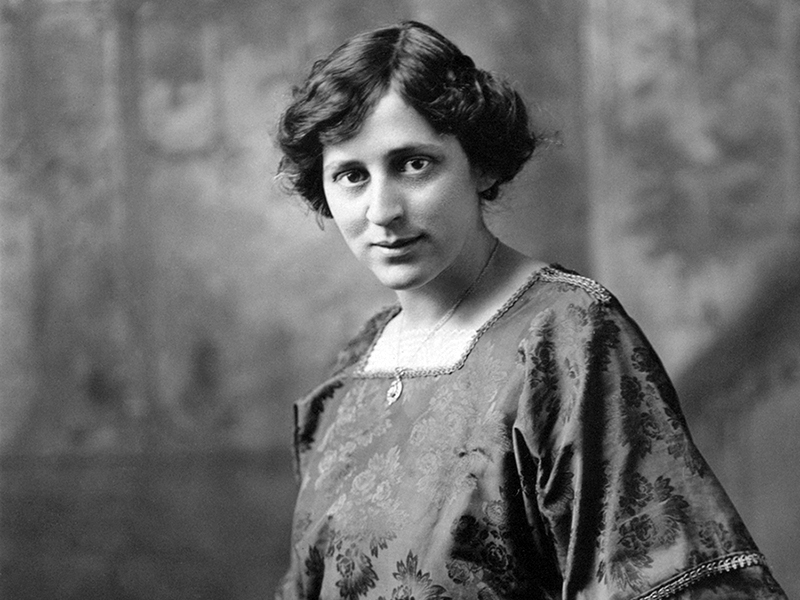Crystal Eastman (1881-1928) was a brilliant feminist theorist, labor lawyer, socialist, journalist and reformer. Born in Massachusetts, the daughter of two Congregational ministers (both feminists), she earned a B.A. at Vassar in 1903, an M.A. in sociology at Columbia in 1904 and a law degree from New York University in 1907.
She is probably best known as a leader in the fight for women's suffrage, co-founder of the National Woman's Party (with Alice Paul), co-author of the Equal Rights Amendment and author of the influential feminist essay, "Now We Can Begin: Beyond Woman Suffrage," published after ratification of the 19th Amendment in 1920, which gave women the right to vote. Eastman's essay addressed what women needed to do with their vote to fix an array of exploitative patterns in American society that kept them dependent on men.
Married twice (divorced once) and the mother of two children, she wrote about the problems women had trying to balance work outside the home with housework and care for family. For women to be truly free, she explained, much more than the vote was required: wages for housework (which would allow women to be economically independent), training boys and girls how to earn their own living and take care of housework (i.e., end the gendered division of labor in which men were breadwinners and women were helpless dependents), access to birth control and generous mothers' pensions (i.e., payment to mothers when they had children regardless of their socio-economic status). [While many European countries would implement these provisions in the mid-20th century, the United States still has not done so.]
Eastman championed the cause of workers and drafted for New York the country's first workers' compensation law, which became the model for workers' compensation throughout the nation.
She was a co-founder and executive secretary of the Women's Peace Party, which became the Women's International League for Peace and Freedom.
She was co-founder of the American Civil Liberties Union, founded during World War I to protect Americans' First Amendment rights too speech, which were being suppressed during the war.
She and her brother Max co-founded the socialist magazine The Liberator after the end of World War I. The Liberator was a radical magazine that carried news of socialist and communist revolutions around the world and published the work of radical artists and thinkers of the day, such as Dorothy Day. Eastman's involvement with socialism led to her being blacklisted during the Red Scare of 1919-1920. However, she managed to publish many articles on social reform and women's issues in the years before she died of nephritis in 1928.
In 2000 she was inducted into the National Women's Hall of Fame in Seneca Falls, New York.
Learn more about Crystal Eastman at the following sites:
This vignette of Crystal Eastman was produced by the Chancellor's Commission on Women.
Contacts
Charlie Alison, executive editor
University Relations
479-575-6731, calison@uark.edu
